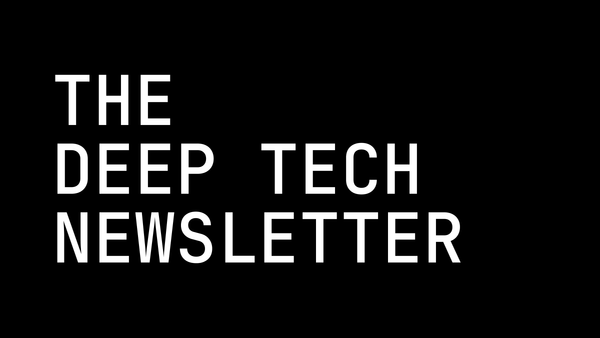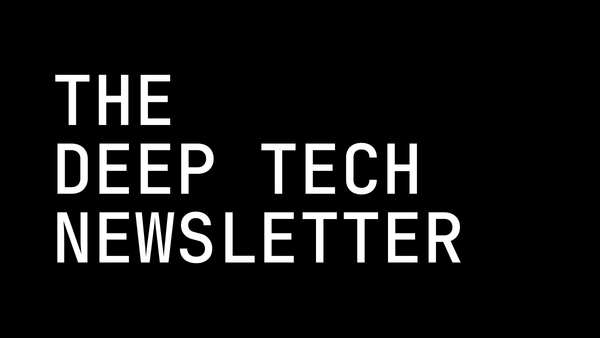Funding the Impossible with Deep Checks’ John Forbes
John Forbes is principal at Julian Capital and COO of Deep Checks, a platform for deep tech founders to connect with thesis fit investors.
John Forbes is principal at Julian Capital and COO of Deep Checks, a platform for deep tech founders to connect with thesis fit investors.

Tell us about your background and journey into deep tech.
My North Star for as long as I can remember has been climate tech. I grew up with a grandfather who was a rocket scientist. He took me to museums and sparked an early interest in science when I was around ten. In college, I focused heavily on climate, and at the same time, I began investing through Dorm Room Fund. After graduating, I spent a few years as an early-stage operator at several climate tech startups.
I was Chief of Staff at Perimeter, a disaster coordination software company, helping it get from zero to product-market fit. I also tried starting my own things and spent time at another early-stage startup. Eventually, I joined Julian Capital and Deep Checks. That was my introduction to the world of deep tech. There’s a lot of overlap between climate and deep tech. It’s been a happy accident because the rest of the space has become fascinating to me as well.
What do you think makes a great founder, particularly in deep tech?
We look for founders with a strong sense of mission and a high degree of persuasiveness. Can they sell to customers, hire great people, and fundraise effectively? That persuasiveness often comes from how deeply they’ve thought through the idea maze. We love meeting founders who have considered a problem from multiple angles. The other thing we look for is agency. Founders need to show they can drive things forward on their own. That applies across tech, but in deep tech the bar is just higher.
You’re dealing with more technical risk, often selling directly to large companies, and navigating long sales cycles. But on the upside, the market risk is often lower. If you clear the technical milestones, there is usually clear demand. That makes our job a little easier because we can underwrite based on obvious market pull.
What sectors or applications in deep tech are most exciting to you right now?
There’s a lot. I spend a lot of my time looking at materials and industrial companies. Many of these involve advances in AI, chemistry, biology, or robotics that allow us to produce commodity materials at a much lower cost. They also tend to be greener than traditional methods. Green cement is one early example. It can be made with less carbon intensity and still hits the specs the industry needs all while being 40 to 50% much cheaper. That’s the kind of product where market pull is really clear.
More broadly, I’m excited by trends like falling robotics component prices, improvements in foundation models, and cheaper space launch costs. All of these are enabling new types of companies to emerge. We’re seeing more startups in materials, chemistry, and biology that wouldn’t have been possible a few years ago.
What’s new at Deep Checks or Julian Capital that you’re excited to announce?
Deep Checks started as an experiment a couple years ago to better connect deep tech founders with funders. It’s gone well. We see thousands of deck submissions per year, from which hundreds of meetings have been made, and tens of millions deployed.
Right now, we’re rolling out an angel scout program. Deep Checks has previously only been available to institutional investors. This new initiative will bring deep tech angels onto the platform. They’ll be able to join the community, participate in programming to get up to speed on VC, and a few other things we’re adding. We’re excited about it because it helps us support more founders and broaden the reach of the platform.
How do you define deep tech?
For Deep Checks, we use a broad definition to be as inclusive as possible. We look for a hardware component, a novel technical process, or some kind of IP that is difficult to replicate. At the fund level, we go a step further. We’re especially excited by companies with real defensibility, which often comes from highly specialized technical knowledge. For example, we might see founding teams with three different PhDs, each a world expert in their field. So broadly speaking, we look for companies that aren’t pure software or fintech. There needs to be something hard to replicate, rooted in technical depth.
HAUS specializes in public relations and creative services for deep tech startups.




